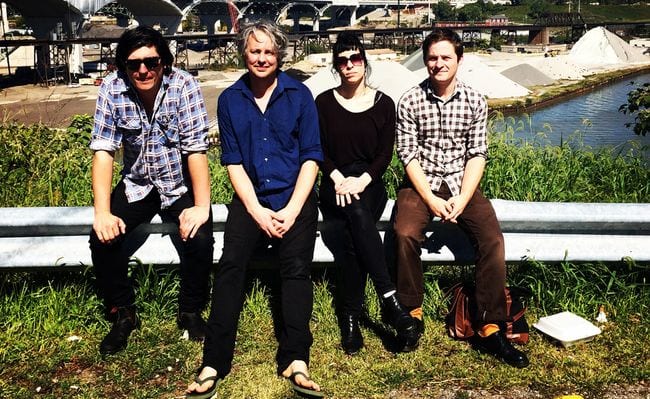
Trading in heavily distorted noise, Australia’s Deaf Wish deliver on the promise of both their nom de band and latest album’s title, Pain. But where others merely create noise for the sake of noise, theirs has a more direct purpose: propelling the music forward while mining the mid-‘80s underground scene of like-minded noiseniks for inspiration.
One of Deaf Wish’s stated guiding principles as a band is that, should they find themselves unsure what to do or play next, simply fall back on feedback. On paper it comes across as a non-musically inclined cop out designed to mask a rudimentary or non-existent skill level. On record, however, their swirling sea of distorted feedback and often atonal skree has led to a well-defined aesthetic that serves as Pain’s statement of purpose.
And far from derailing the songs themselves, the distortion and feedback often becomes the basis upon which the song is built. On the massive sonic morass that is “Dead Air,” feedback becomes the primary voice, replacing those of the four members of Deaf Wish in favor of a frantic unpredictability the better underscores the often fierce aggression of the music itself. Over driving bass and drums, dueling guitarists Jensen Tjhung and Sarah Hardiman wail and bash away on their instruments, allowing seemingly random, fragmentary bits of feedback and distortion bleed through, ramming into one another and creating the sound of barely controlled chaos.
Only in the track’s closing minute or so is the unbridled feedback freed from its cage, allowed to evolve naturally into an ear-splitting whine before settling into a slow-burning drone. It’s an impressive show of force that, at over six and a half minutes, never once feels overlong or forced. Given that many of the album’s tracks often don’t even reach the two-minute mark, this is quite a feat.
Interspersing shoegaze-esque numbers with brutally pulverizing noise punk, Deaf Wish’s Pain beautifully alternates between aural pleasure and pain, never settling long enough on one or the other for the listener to feel comfortable or become complacent. With Hardiman taking lead vocals on a handful of tracks, her softer coo stands in sharp contrast to the vocal barks of her male band mates. But while her voice itself may be better suited to the poppier end of the indie spectrum, when cast against the roiling guitars and ear-splitting distortion, especially on “Sex Witch”, it functions as a perfect mix of sweetness and light that helps make Pain an interesting, if not altogether brilliant, listen.
But given the nature of the music and Deaf Wish’s clearly stated intention of purpose, it’s an appropriately confusing juxtaposition that finds much of the album whipping between frenetic and deafening and sprawling and gorgeous. On opening track “The Whip”, Deaf Wish put forth the comparably lighter side of their sound, lulling the listener into a false sense of sonic security that is quickly shattered by the mercifully brief assault that is “Newness Again,” a track full of frothing aggression and agro-punk sentiments.
But it’s these often drastic dynamic and stylistic contrasts that help make Pain such a compelling listen, one which requires multiple spins to fully sink in. While others have certainly done it louder and better in the past, Deaf Wish prove themselves able perpetuators of the noisier end of the ‘80s underground. At just over 30 minutes, it’s a wild ride that, listened to at the right volume, will no doubt result in the appropriate amount of pain.

